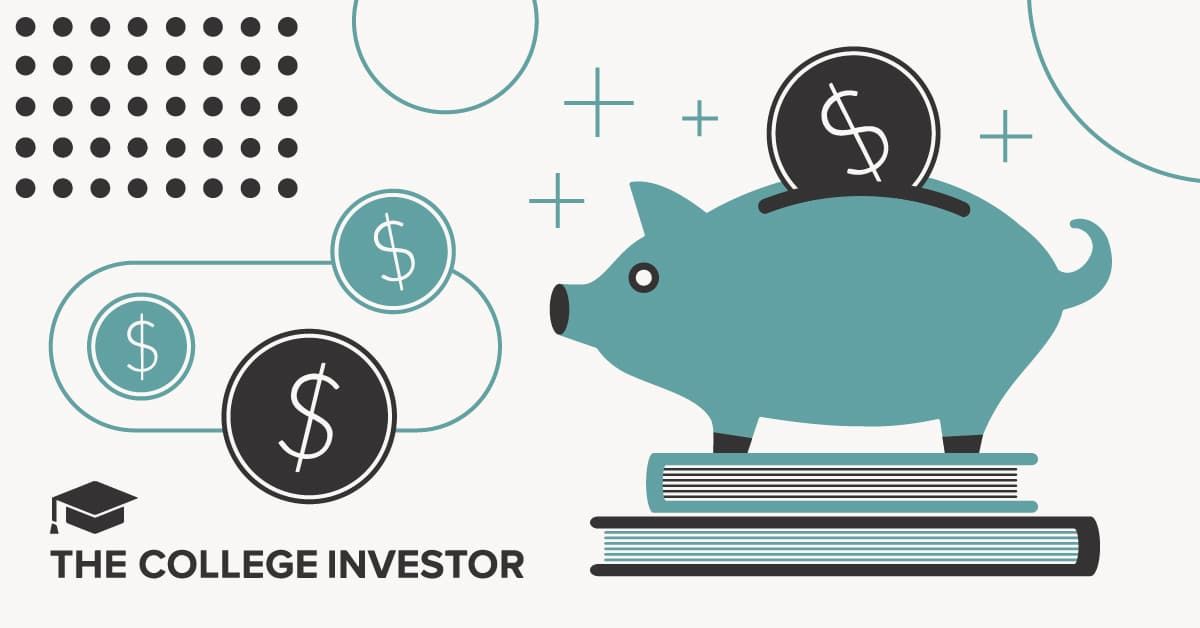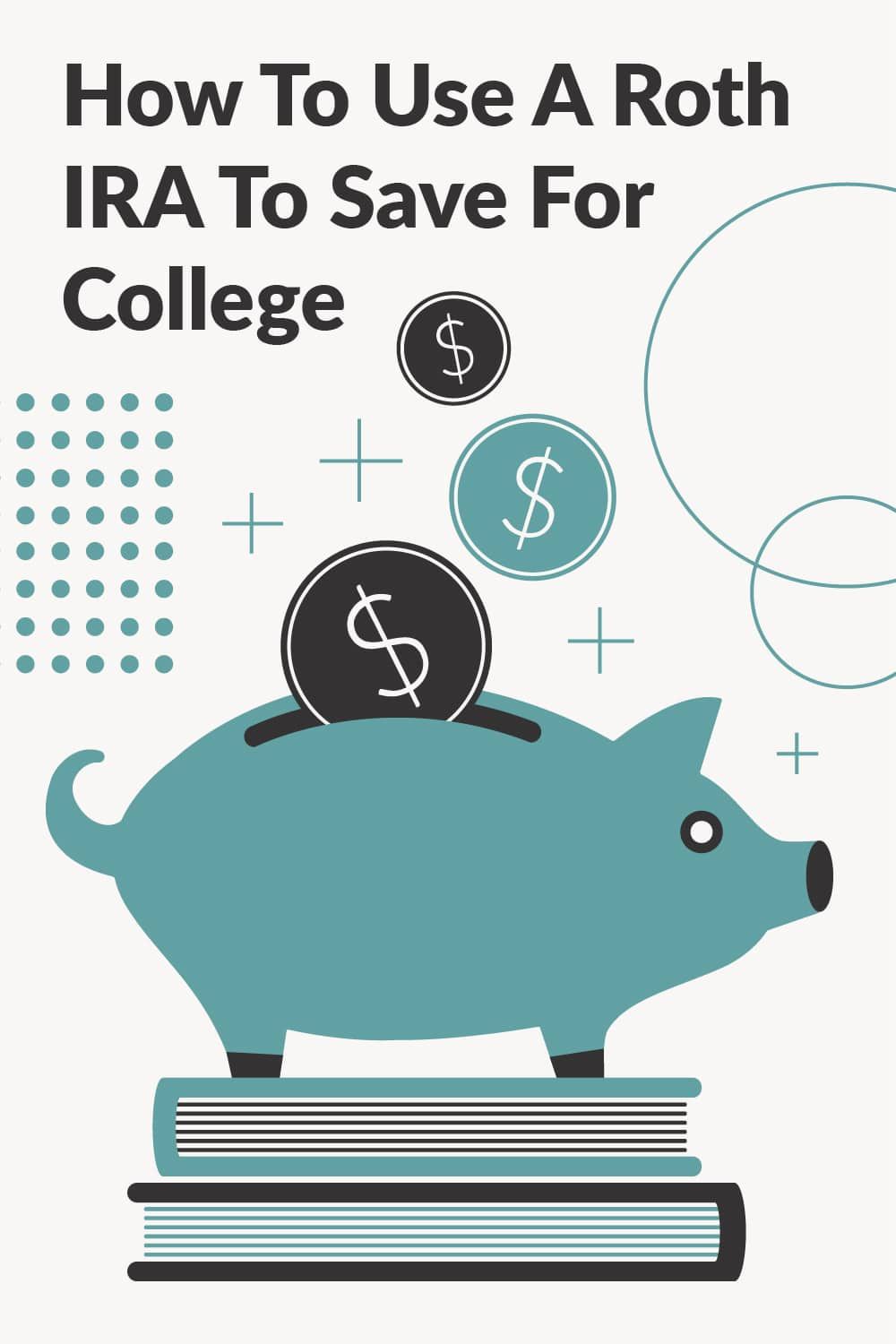
While a Roth IRA is one of the best ways to save for retirement, it can also be used to save for college.
A Roth IRA is one of the best ways to invest for retirement, since the money inside it grows tax-free and in most cases, withdrawals for retirement come without any tax consequences. It can be an especially great way to save for retirement when you're young and your income is relatively low. If you're in a low tax bracket, getting a tax deduction (like for 401(k) or Traditional IRA contributions) won't benefit you nearly as much.
But while the primary use of a Roth IRA is for retirement, there are a couple of other ways that you can withdraw money from your Roth IRA without paying a penalty.
One of those is for qualified higher education expenses. That makes using a Roth IRA to save for college one option to consider.
What Is A Roth IRA?
A Roth IRA is an alternative to what is now called a "Traditional" IRA. Roth IRAs were established in 1997 and named for Senator William Roth from Delaware. In a traditional IRA, you can take a tax deduction for contributions in the year that you make them, but you pay taxes when you withdraw the money in retirement.
With a Roth IRA, you flip that tax calculation — you won't get a tax deduction when you make the contributions, but your earnings grow tax-free. You also won't pay any taxes on money that you withdraw in retirement. This combination makes it an attractive way to save for retirement, since you can have potentially unlimited tax-free retirement savings.
Regulations For Withdrawing From A Roth IRA
As you might imagine, given that a Roth IRA is primarily a vehicle for saving for retirement, there are regulations for when and how you withdraw money from your Roth IRA account. Because you make contributions to a Roth IRA with after-tax money, there is not a penalty or tax consequence if you withdraw the contributions. You can always withdraw your contributions at any time. But, except in certain circumstances that we'll address below, you will pay taxes and/or a penalty if you withdraw any earnings from your Roth IRA before retirement.
Generally speaking, you can make a qualified withdrawal of earnings from your Roth IRA if you have had the account for at least five years and you are at least 59 ½ years old. There are also a few exceptions to this rule including if you die, are permanently disabled or are using the money for the purchase of your first home.
If you make a non-qualified earnings withdrawal from your Roth IRA account, you will be taxed on the amount of your earnings as ordinary income AND pay a 10% penalty. However, there are a few exceptions that don't require the 10% penalty. Per IRS Topic 557, here are a few of the major ones:
- Death of the IRA owner
- Becoming permanently disabled
- A qualified first-time home purchase
- Higher education expenses
- Health insurance premiums after being unemployed
- Un-reimbursed medical expenses over a certain percentage of your income
- An IRS levy
- A qualified reservist distribution
- In case of a qualified emergency or disaster
- Up to $5,000 for a qualified birth or adoption distribution
If you make a withdrawal of earnings from your Roth IRA account in one of these categories, you won't pay a 10% penalty (but you will still pay taxes on the amount of your earnings).
Since we're talking about using a Roth IRA to save for college, let's specifically look at the higher education expenses.
As an example, let's say that you have made $25,000 in contributions to your Roth IRA and the balance has now grown to $35,000. If you want to withdraw the entire amount to pay for qualified higher education expenses, then you will pay no tax or penalty on your $25,000 in contributions. Because higher education is an allowed reason to withdraw earnings before retirement, you will not pay a penalty but you will pay taxes on the $10,000 in earnings.
How Roth IRA Withdrawals Impact Your FAFSA
The FAFSA is the Free Application For Student Aid. It’s used to determine a student’s eligibility for student aid.
While a Roth IRA does provide great advantages when paying for education, there are a few things you’ll want to keep in mind to further maximize its benefits.
Withdrawals from a Roth IRA can impact your FAFSA, reducing the amount of financial aid you might receive.
Rick Wilder, the director of student financial affairs at the University of Florida, mentions ”Students who apply for need-based financial aid are required to report income and asset information on the FAFSA.”
Retirement accounts aren’t counted as assets on the FAFSA (so you don't have to report the balance of your Roth IRA). However, withdrawals from a retirement account, such as a Roth IRA, are counted against the FAFSA.
A little planning ahead and possibly even speaking with an accountant can help to get the most out of the FAFSA and your Roth IRA for educational expenses.
Drawbacks To Using A Roth IRA To Save For College
While a Roth IRA can be an option to consider when saving for college, there are a few drawbacks to using a Roth IRA for college savings. These drawbacks vary depending on whether you are withdrawing money from the student's IRA or from a parent's IRA.
Using A Student's Roth IRA
There are two big drawbacks to using a student's Roth IRA.
First, it's really hard to get money into a child's Roth IRA. There are a lot of rules about earned income, and when children are young, it's hard to fund a Roth IRA (or fund it fully). As children start working when they are teenagers, it's easier, but even then, the amount you can contribute is likely low.
Second, when you use the money out of the account, it counts fully as income for the child. So, you might get a benefit for a student going into their freshman year of college, but when filling out the FAFSA for their second year of school, they're going to have to fully report any amount withdrawn the previous year as income.
Using A Parent's Roth IRA
Beyond the FAFSA implications, the big drawback to using a Roth IRA for college tuition is that you're withdrawing from a retirement account "mid life". Since you are limited on how much you can contribute, do you think you'll make up the loss over time? It's tough to say.
For example, let's say you start saving the max at $6,000 per year right now and continue for 18 years. Maybe that's grown to $150,000 in total. That's awesome. But, if you start pulling out $25,000 per year for 4 years, you're now back down to $50,000.
Don't get me wrong, $50,000 for a 22 year old is awesome - but what is the lost opportunity cost of that extra $100,000?
Over 40 years, that $100,000 could have grown into $2,172,000 - tax free. And that's with no additional contributions! If you take that original IRA, continue adding in $5,500 per year, you get $4,682,000 at age 62!
If you start with the left over $50,000 and contribute $6,000 per year - you now only grow to $2,500,000. Not a bad return, but you end up losing 50% of your value potentially.
That's the big drawback. Pulling money out of a tax sheltered account like a Roth IRA "mid life" or "early life" really hinders future returns on that money. And that would be tax free money.
Alternative Ways To Save For College
Rather than using a Roth IRA to save for college, many people will be better off using a 529 plan or a Coverdell Education Savings account. These two types of accounts are similar yet have a few key differences:
- 529 plans have no contribution limit (except the gift tax exclusion), however, Coverdell accounts have a contribution limit of $2,000 per beneficiary
- Generally you have a wider array of investment options with a Coverdell account
- Many states offer tax credits or tax deductions for contributing to a 529 plan
- Coverdell accounts have a wider list of what counts as an educational expense
- Coverdell accounts also have limits on contributor income and beneficiary age
In both cases, you can use tax-free distributions to pay for qualified educational expenses. Consider one of these types of accounts instead of using a Roth IRA for college savings.
Final Thoughts
A lot of people want to use a Roth IRA to save for college because they think "what if my child doesn't go to college - that money could be wasted". And while that's a concern, there are still ways to access funds in accounts like a 529 plan or Coverdell.
While you can use a Roth IRA to save for college, the drawbacks are bigger than the rewards in our opinion.
The first is that you may have to pay taxes on any earnings that you withdraw. It may also affect your FAFSA and the amount of financial aid that your student may be eligible for. But the biggest drawback is how it can negatively impact your own retirement savings.
Remember that you can always get financial help to pay for college, but there isn't financial aid to pay for your retirement!
Rather than using your Roth IRA, most people will be better off using a 529 plan or a Coverdell Education Savings account to pay for college.
Would use consider using Roth IRA funds for high education expenses? Why or why not?

Robert Farrington is America’s Millennial Money Expert® and America’s Student Loan Debt Expert™, and the founder of The College Investor, a personal finance site dedicated to helping millennials escape student loan debt to start investing and building wealth for the future. You can learn more about him on the About Page or on his personal site RobertFarrington.com.
He regularly writes about investing, student loan debt, and general personal finance topics geared toward anyone wanting to earn more, get out of debt, and start building wealth for the future.
He has been quoted in major publications, including the New York Times, Wall Street Journal, Washington Post, ABC, NBC, Today, and more. He is also a regular contributor to Forbes.
Editor: Clint Proctor Reviewed by: Chris Muller
